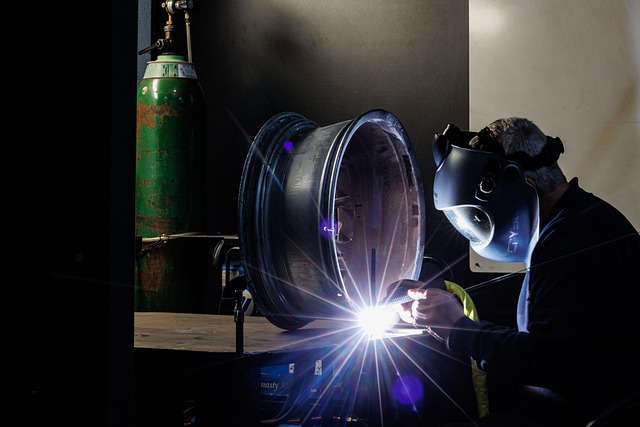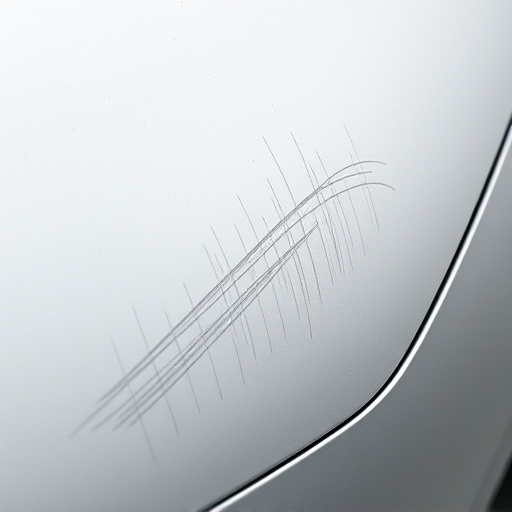Airbag safety certification is a stringent process that ensures vehicle airbags meet robust safety standards, aiming to protect occupants from severe injuries or fatalities. Auto dent repair professionals play a crucial role by maintaining structural integrity while integrating airbag components, directly impacting the reliability of airbags during collisions. Certified technicians ensure accurate installation, maintenance, and repair of airbag systems, conducting thorough inspections and replacing defective components. Strategies for enhancing technician accountability include establishing clear performance standards, regular training sessions, and robust quality control measures.
In the realm of automotive safety, understanding the intricate link between airbag safety certification and technician accountability is paramount. This article explores how these two factors intertwine to ensure the integrity of vehicle airbags, a crucial component in saving lives. We delve into the process of airbag safety certification, highlighting the critical role technicians play in maintaining safety standards. Additionally, we present strategies to fortify this connection, fostering a culture of accountability that revolutionizes airbag safety protocols.
- Understanding Airbag Safety Certification: A Brief Overview
- The Role of Technician Accountability in Ensuring Safety Standards
- Strategies to Strengthen the Link Between Accountability and Certification
Understanding Airbag Safety Certification: A Brief Overview

Airbag safety certification is a crucial process designed to ensure that airbags installed in vehicles meet stringent safety standards. This certification involves rigorous testing and evaluation by authorized bodies to guarantee the reliable deployment and effectiveness of airbags during collisions. The primary goal is to protect occupants from severe injuries or fatalities, making it an integral part of modern automotive safety features.
In the realm of vehicle bodywork and collision repair, airbag safety certification plays a pivotal role in upholding the highest levels of passenger security. Auto dent repair professionals, among others, contribute to this process by ensuring that vehicles’ structural integrity remains intact while accommodating the necessary components for airbag deployment. This meticulous attention to detail is vital, as it directly impacts the overall effectiveness and reliability of airbags during critical situations on the road.
The Role of Technician Accountability in Ensuring Safety Standards

In the automotive industry, maintaining safety standards is paramount, especially when it comes to life-saving components like airbags. Airbag safety certification plays a pivotal role in ensuring that vehicles meet stringent criteria for passenger protection during collisions. Technician accountability is an essential aspect of this process. Certified technicians are responsible for accurately installing and maintaining airbag systems, including intricate wiring and sensors. Their meticulous work ensures that airbags function optimally when needed, reducing the risk of accidents and potential injuries.
Through regular training and adherence to strict protocols, these technicians are equipped to handle complex repairs, such as bumper repair and tire services, while prioritizing safety. This level of accountability is crucial in identifying potential issues, replacing defective components, and conducting thorough inspections to maintain the integrity of airbag systems. By upholding these standards, collision centers contribute significantly to the overall safety of vehicles on the road, ultimately protecting drivers, passengers, and other road users.
Strategies to Strengthen the Link Between Accountability and Certification

To strengthen the link between technician accountability and airbag safety certification, several strategies can be implemented. Firstly, establishing clear performance standards and protocols for technicians involved in bumper repair, dent removal, and collision center operations is essential. These standards should detail every step of the airbag safety certification process, from initial inspection to final testing, ensuring each technician understands their role in maintaining safety. Regular training sessions can reinforce these protocols, keeping technicians updated with industry best practices and any regulatory changes.
Secondly, implementing robust quality control measures can enhance accountability. This includes thorough pre-and post-repair inspections, documentation of every repair step, and the use of specialized tools designed for precise airbag deployment and deactivation. By integrating advanced technologies like digital diagnostics and data tracking, collision centers can monitor technician performance, identify potential issues, and promptly address them, thereby strengthening the overall safety certification process.
Airbag safety certification is non-negotiable for automotive industries, as it guarantees the protection of drivers and passengers. Technician accountability plays a pivotal role in upholding these safety standards by ensuring precise installations and regular maintenance. By implementing robust strategies to strengthen the link between accountability and certification, we can enhance the overall reliability of airbags, ultimately saving lives on our roads.














